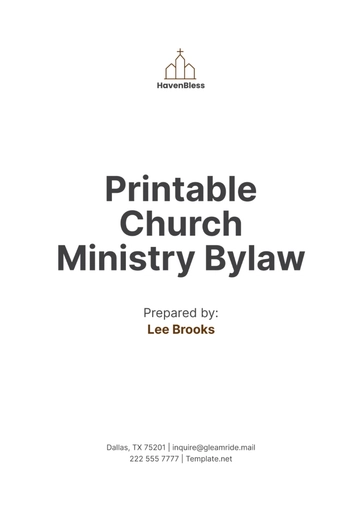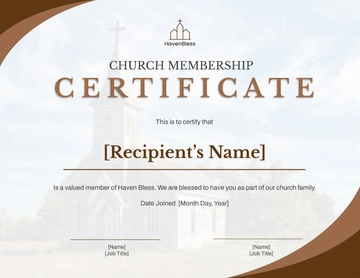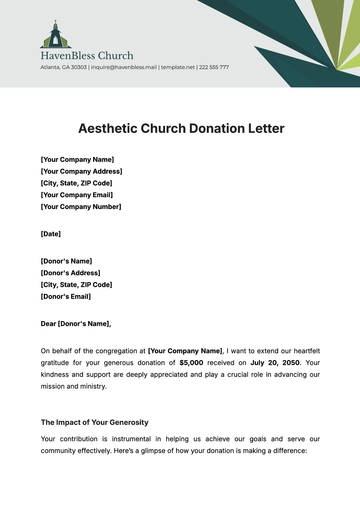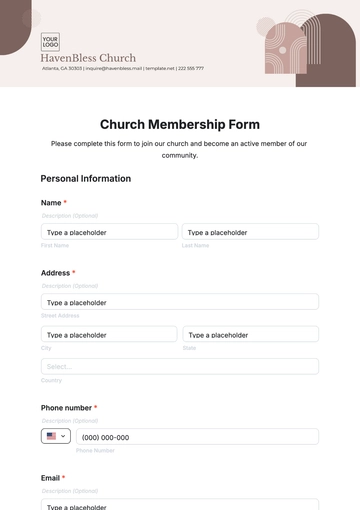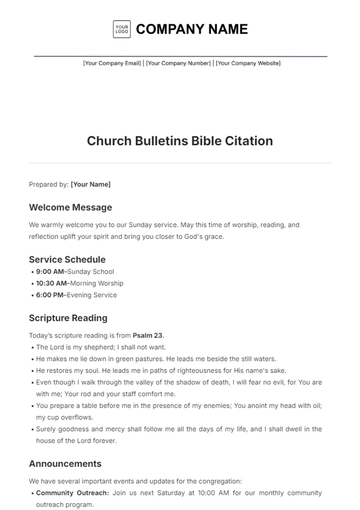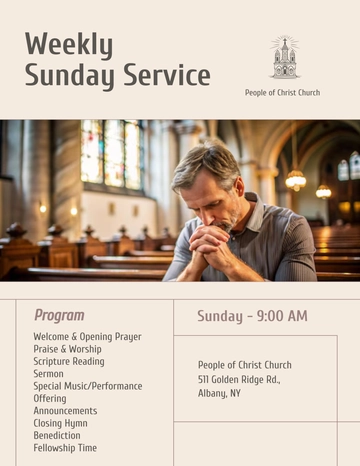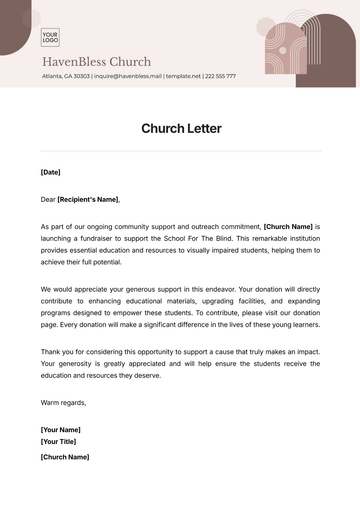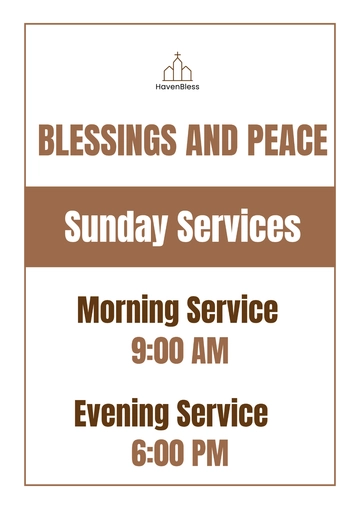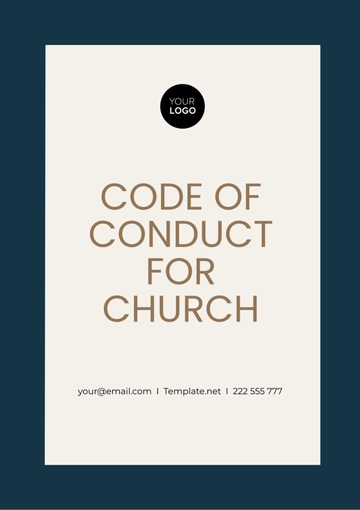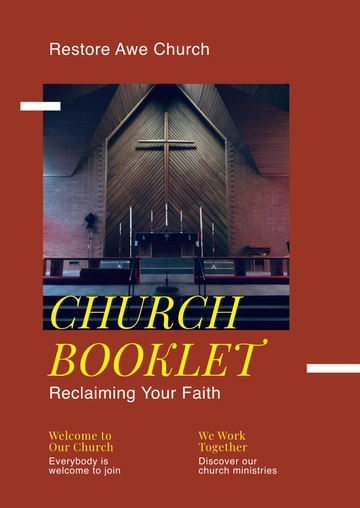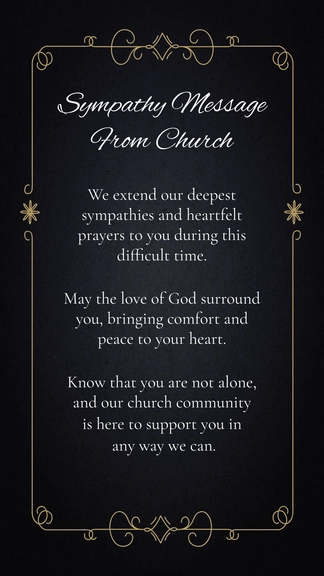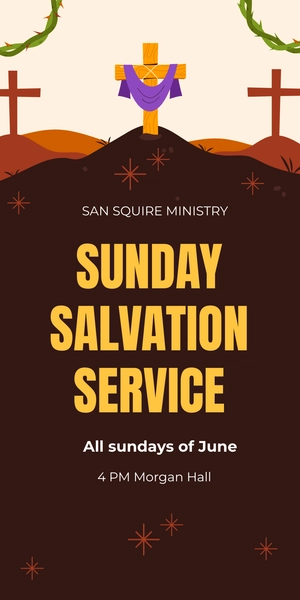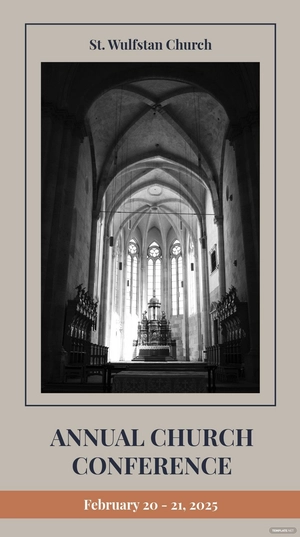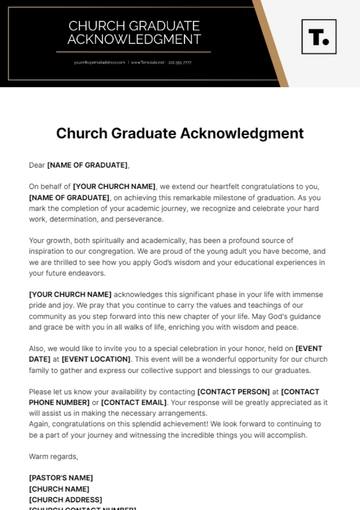Free Church Document Management Policy
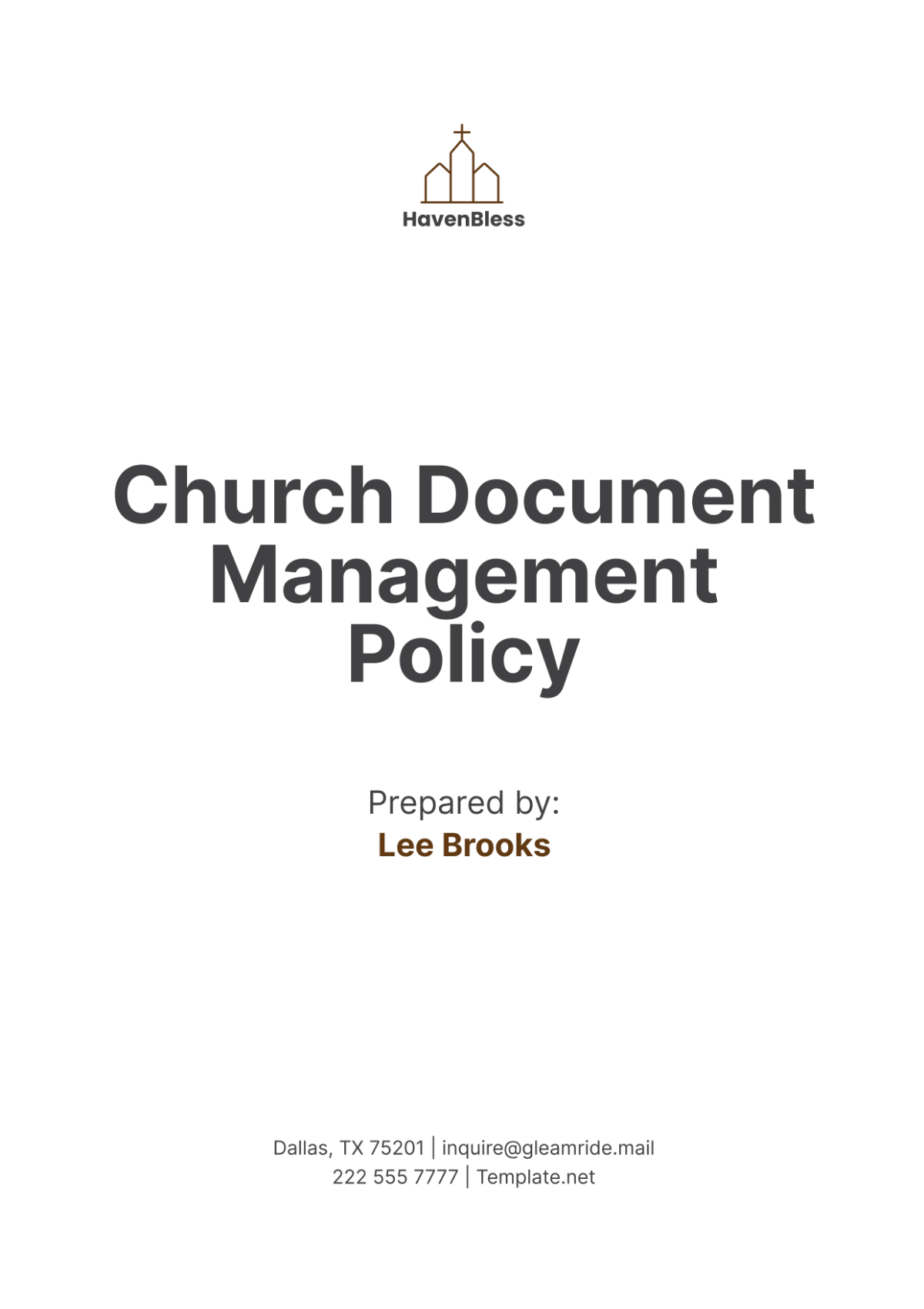
I. Introduction
The Document Management Policy of [Your Company Name] outlines the guidelines and procedures for handling, storing, and distributing all documents related to the church's operations and services. This policy ensures the accurate and secure management of documents, which is crucial for maintaining transparency, accountability, and efficient service delivery to the community.
A. Scope
This policy applies to all types of documents, including administrative records, financial statements, membership records, service bulletins, legal documents, and communications with the community. It covers document creation, access, storage, and archiving, as well as the distribution and retrieval processes. The policy is designed to protect the integrity and confidentiality of sensitive information while facilitating easy access to public and internal documents.
II. Document Classification and Handling
Proper classification and handling of documents are vital for the efficient management and retrieval of information. This section defines the categories of documents managed by the church and outlines the procedures for their handling.
Administrative Records: These include documents related to church operations, such as meeting minutes, correspondence, and policy documents. They are stored securely and accessed by authorized personnel only.
Financial Documents: This category includes budgets, financial statements, donation records, and audit reports. Financial documents are managed with strict confidentiality and compliance with legal requirements.
Membership Records: These records contain personal information about church members, including contact details, membership status, and participation in church activities. Access to membership records is restricted to protect members' privacy.
Service Bulletins and Event Programs: Documents related to worship services and church events are categorized under this heading. They are distributed to members and the public as part of regular communication.
Legal and Compliance Documents: This includes contracts, legal agreements, and compliance reports. These documents are handled with high confidentiality and stored securely.
Communications and Outreach Materials: Documents such as newsletters, flyers, and promotional materials are used for outreach and engagement with the community. They are regularly updated and distributed widely.
III. Document Access and Security
Ensuring secure access to documents is essential for protecting sensitive information and maintaining operational integrity. This section outlines the access controls and security measures in place for document management.
Access Control: Access to documents is granted based on the role and responsibilities of church personnel. Sensitive documents are restricted to authorized individuals to prevent unauthorized access.
Digital Security: Digital documents are stored in secure systems with encryption and regular backups. Access to digital records is protected by passwords and user authentication protocols.
Physical Security: Physical documents are stored in secure, locked locations with controlled access. Only authorized personnel can access these storage areas.
Document Tracking: A tracking system is used to monitor the access, retrieval, and distribution of documents. This system ensures accountability and helps prevent the loss or unauthorized dissemination of information.
Audit Trails: Access and modifications to documents are recorded in audit logs, which are regularly reviewed to ensure compliance with security policies.
Confidentiality Agreements: Staff and volunteers with access to sensitive information are required to sign confidentiality agreements, ensuring they understand and commit to protecting the church's information.
IV. Document Retention and Disposal
Retaining documents for appropriate periods and securely disposing of them are critical aspects of document management. This section provides guidelines for document retention schedules and disposal procedures.
Retention Schedule: Documents are retained according to legal, regulatory, and operational requirements. The retention schedule specifies the duration for which each type of document must be kept.
Archiving: Older documents that are not frequently accessed but must be retained for legal or historical purposes are archived in secure storage. Archiving ensures these documents are preserved and accessible when needed.
Disposal Procedures: Documents that are no longer needed and have surpassed their retention period are disposed of securely. This includes shredding physical documents and securely deleting digital files.
Record of Disposal: The disposal of documents is recorded, detailing the type and volume of documents destroyed, the method of destruction, and the personnel involved. This record helps maintain compliance and accountability.
Legal Holds: In the event of legal investigations or disputes, relevant documents are placed on legal hold, preventing their destruction or alteration until the matter is resolved.
Preservation of Historical Records: Significant historical records are preserved for their value to the church's heritage and history, regardless of standard retention periods.
V. Fees for Document Services
The table below outlines the fees associated with various document services provided by the church. These fees cover administrative costs and ensure the efficient handling and delivery of documents to members and the community. Certain documents, like financial contribution statements, are provided free of charge to support transparency and donor relations.
Document Type | Service Fee | Notes |
|---|---|---|
Baptismal Certificate | $10 | Issued upon request for official or personal use |
Marriage Certificate | $15 | Includes official church seal and signature |
Membership Records | $5 | Fee applies for copies of records |
Financial Contribution Statement | Free | Provided free annually to contributors |
Event Program Reprints | $2 | For copies of past service or event programs |
Legal Document Copies | $20 | Includes contracts and legal agreements |
VI. Types of Documents Managed
This table categorizes the different types of documents managed by the church, along with examples and access levels. Access levels indicate who can view or handle these documents, ensuring that sensitive information is protected while public information is accessible as needed.
Document Category | Examples | Access Level |
|---|---|---|
Administrative Records | Meeting minutes, correspondence | Restricted to leadership |
Financial Documents | Budgets, donation records | Restricted, finance committee |
Membership Records | Member contact information | Restricted, membership team |
Service Bulletins | Weekly service outlines, hymns | Public |
Legal and Compliance Documents | Contracts, insurance policies | Highly restricted |
Communications Materials | Newsletters, flyers | Public |
VII. Contact List for Document Services
The table provides a contact list for obtaining various documents or document-related services. This list helps church members and staff know whom to contact for specific document needs, facilitating efficient communication and service delivery.
Service/Document | Contact Person | Contact Information | Notes |
|---|---|---|---|
Baptismal Records | [Name] | [Number]/[Email] | Available during office hours |
Financial Documents | [Name] | [Number]/[Email] | Appointment required |
Membership Information | [Name] | [Number]/[Email] | Privacy considerations |
Event Programs | [Name] | [Number]/[Email] | For reprints and information |
Legal Documents | [Name] | [Number]/[Email] | Access restricted |
General Inquiries | [Name] | [Number]/[Email] | General office hours |
VIII. Policy Compliance and Review
Regular reviews of the Document Management Policy ensure that it remains effective and compliant with evolving legal and organizational standards. This section outlines the procedures for policy compliance and periodic review.
Compliance Monitoring: The church's administrative team is responsible for ensuring compliance with this policy, conducting regular checks and audits. This monitoring helps identify any areas of non-compliance and addresses them promptly.
Annual Review: The Document Management Policy is reviewed annually to ensure it continues to meet the needs of the church and complies with any new legal requirements. This review process involves input from relevant stakeholders.
Training and Awareness: Staff and volunteers are trained on the policy and procedures for document handling. This training includes the importance of confidentiality and proper document disposal practices.
Feedback Mechanism: A system for receiving and addressing feedback on the document management process is established, allowing for continuous improvement.
Policy Updates: Any updates to the policy are communicated to all relevant personnel, ensuring everyone is informed of changes and new procedures.
The Document Management Policy provides a comprehensive framework for managing all documents related to the church's activities and services. By following [Your Company Name]'s policy, we ensure the secure handling of sensitive information, efficient access to public documents, and compliance with legal and ethical standards. The policy supports the church’s commitment to transparency, accountability, and efficient service delivery, benefiting both the church community and the broader public. Regular review and updates will keep the policy relevant and effective in meeting the church's needs.
- 100% Customizable, free editor
- Access 1 Million+ Templates, photo’s & graphics
- Download or share as a template
- Click and replace photos, graphics, text, backgrounds
- Resize, crop, AI write & more
- Access advanced editor
Streamline document handling with the Church Document Management Policy Template from Template.net. This editable and customizable template provides a systematic approach to document creation, storage, retrieval, and disposal within the church. The layout includes sections for document classification, access controls, retention schedules, and compliance requirements, ensuring efficient and secure document management.
